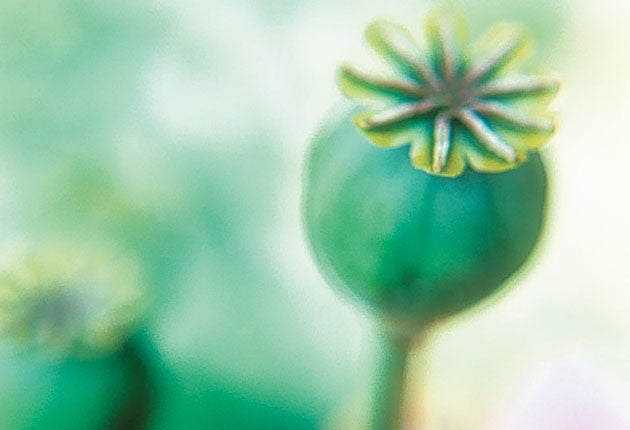Painkiller that changes form once it's inside the body

Your support helps us to tell the story
From reproductive rights to climate change to Big Tech, The Independent is on the ground when the story is developing. Whether it's investigating the financials of Elon Musk's pro-Trump PAC or producing our latest documentary, 'The A Word', which shines a light on the American women fighting for reproductive rights, we know how important it is to parse out the facts from the messaging.
At such a critical moment in US history, we need reporters on the ground. Your donation allows us to keep sending journalists to speak to both sides of the story.
The Independent is trusted by Americans across the entire political spectrum. And unlike many other quality news outlets, we choose not to lock Americans out of our reporting and analysis with paywalls. We believe quality journalism should be available to everyone, paid for by those who can afford it.
Your support makes all the difference.The name "codeine" comes from the Greek word kodeia, meaning "poppy head". It has been traditionally prepared from the opium poppy for many centuries and it was first isolated as a discrete chemical compound in 1832 by the French chemist and pharmacist Pierre Robiquet.
Although codeine can be extracted directly from the opium poppy, most commercially available products are made by altering the chemical structure of morphine to produce purified codeine for use as a general painkiller.
Codeine is classed as a "prodrug", meaning that it does not directly affect the body but is broken down by the liver to produce morphine, the opiod drug that is the effective painkiller. This is also highly addictive when taken repeatedly.
In 2005, the pharmaceuticals industry brought in voluntary guidelines for over-the-counter medicines containing codeine. These involved the addition of addiction warnings to packets which advised patients not to take codeine-containing pills for more than three consecutive days without talking a doctor.
In the same year, packs were restricted to 32 tablets, which is now a legal maximum for codeine painkillers sold over the counter. In effect, the medicines are sold from behind the counter, because pharmacists must oversee each individual sale. Only one product containing codeine is allowed to be sold to a customer at any one time. Pharmacists are also required to ask customers whether they have used codeine-containing painkillers before, to minimise the risk of immediate adverse reactions.
Codeine has always been considered an important analgesic for moderately painful conditions where morphine is not considered necessary. However, more recent research involving DNA studies have suggested that people with different genetic make-ups vary in their ability to metabolise codeine into morphine.
This has led some scientists to question whether codeine can be given in doses that will always be effective or safe. They are also concerned that some people are becoming addicted to codeine-containing drugs sold over the counter without a doctor's prescription.
'Mother's little helper' for Celebrities
Howard Hughes
Hughes was addicted to codeine when he died in 1976. A pioneering aviator, numerous plane crashes had left him in constant pain. Hughes, who referred to the drug as "my goodies", would dissolve a tablet in water and inject it directly.
Elvis Presley
Fans of Elvis Presley, who died suddenly from a heart attack in 1977, believe codeine played a role in killing the King. Autopsy reports showed Presley had 14 prescription drugs in his system. He regularly used codeine.
Steve Clark
On 8 January 1991, Def Leppard's rhythm guitarist Steve Clark was found slumped on his sofa by his girlfriend Janie Dean. His body contained prescription drugs including codeine, valium and morphine.
Mel Smith
The comedian was twice treated for burst stomach ulcers after developing an addiction to Nurofen Plus, a mixture of ibuprofen and codeine. He called the addiction his "dark secret". He admitted swallowing 50 tablets a day to ease the pain from gout. "They didn't make me feel high, they helped me to relax."
Join our commenting forum
Join thought-provoking conversations, follow other Independent readers and see their replies
Comments